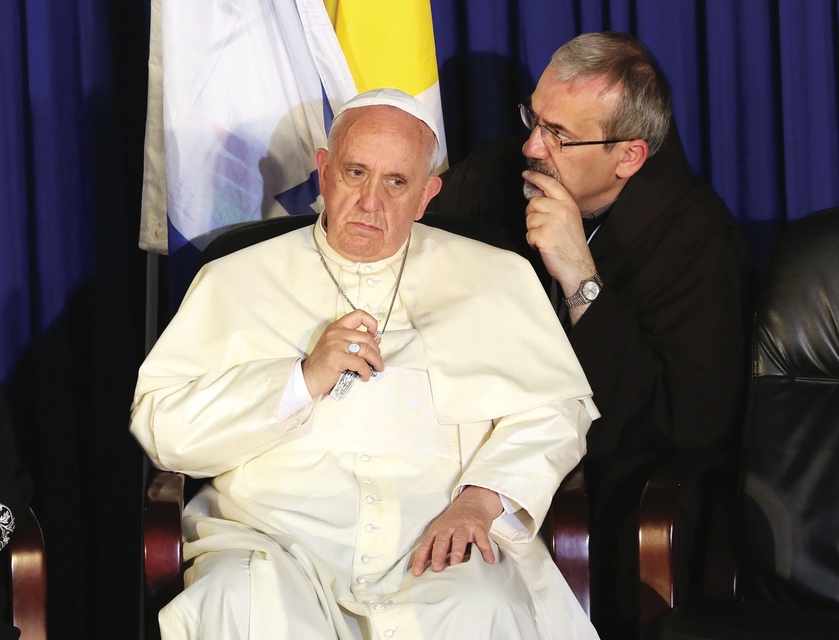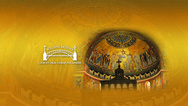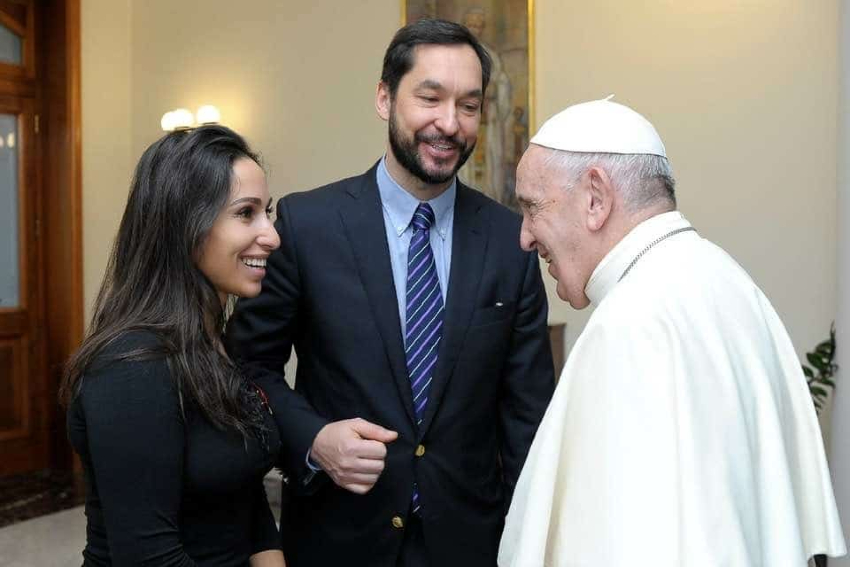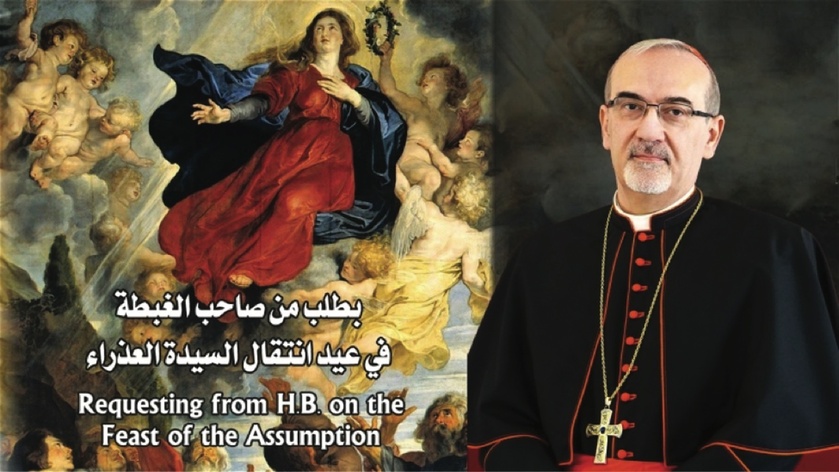By Christopher Hart-Moynihan
“No one wants war but no one can stop it.”
That was how the Latin Patriarch of Jerusalem, Pierbattista Pizzaballa, characterized the situation in the Holy Land recently, after nearly a year of war, in an interview with Vatican News, the official Vatican news agency. What started with a series of terrorist attacks carried out against Israel on October 7, 2023, has after 10 months spiraled into a conflict that is on the brink of expanding — some would say, has expanded — to the entire Middle East.
The international community has largely stood by while the terrible bloodshed that broke out on October 7 has continued and grown worse. Many observers have warned that the conditions are now in place for several possible “worst-case scenarios” to play out, which would embroil the world’s major powers in a new “World War” for the 21st century. These concerns were accentuated by several recent targeted bombing attacks outside of Israel, in Lebanon and in Iran, for which Iran and Hezbollah have vowed to retaliate. As of this writing, a definitive retaliation has not yet occurred.
Of course, as many analysts have observed, the roots of Israel’s current war with Hamas and the increasingly intensifying dispute with Hezbollah and Iran date back decades, making the current iteration of the conflict exponentially more difficult to resolve. Nonetheless, in recent weeks, various voices in the Vatican have continued to work through diplomatic channels in attempts to prevent the conflict from escalating further.
The task of Cardinal Pizzaballa is made even more difficult by the fact that Christians on all sides of the conflict have experienced, and continue to experience, suffering and loss. In the first week of August, Israel’s northern neighbor Lebanon, which is both the seat of Hezbollah’s operations as well as the home of several sizable Christian communities — including Orthodox, and Maronite, Syriac and Melkite Catholics — saw panicked crowds pack into Beirut’s Rafic Hariri international airport as people desperately tried to leave the country before the outbreak of further hostilities.
The panic in Lebanon was brought on by the targeted killings of a Hezbollah leader in Beirut and a Hamas leader in Tehran. Airstrikes by the Israeli Defense Forces (IDF) killed Fuad Shukr, the Hezbollah commander, on July 30 in Beirut (upper left), and Ismail Haniyeh, the leader of Hamas’ political arm (here), in Tehran on July 31. In response, Hassan Nasrallah, the longtime leader of Hezbollah, stated, “After the assassination of Haniyeh, Iran finds itself obliged to respond. After the assassination of Fuad [Shukr], Hezbollah finds itself obliged to respond.”
As of this writing, nearing the middle of August, a military response by Iran and/or Hezbollah, of the type that would definitively usher in a wider war, has not yet occurred. However, multiple signs seem to indicate that such a response is imminent. In recent days, Russian military officials have visited Iran and the United States Navy has begun to position warships off the coast of Israel and in the Arabian Sea and the Persian Gulf, to the south of Iran. An escalated conflict could quickly entangle the two superpowers, who are already fighting a shadow war in Ukraine. Meanwhile, the U.S. State Department issued an updated travel advisory for Lebanon on July 31, advising all Americans, “Do Not Travel to Lebanon due to rising tensions between Hizballah [Hezbollah] and Israel. If you are in Lebanon, be prepared to shelter in place should the situation deteriorate.”

The trust between Pope Francis and Latin Patriarch of Jerusalem Pierbattista Pizzaballa dates back to the beginning of the pontificate. Here, Pizzaballa whispers into the Pope’s ear on May 26, 2014, more than 10 years ago, when Pope Francis visited Israel to commemorate the 50th anniversary of the historic 1964 encounter in Jerusalem between Pope Paul VI and the Ecumenical Greek Orthodox Patriarch, Athenagoras (Photo Grzegorz Galazka)
At his August 7 General Audience, Pope Francis once again called for de-escalation. “I pray that the sincere search for peace will extinguish strife, love will overcome hatred, and revenge will be disarmed by forgiveness,” Francis said, reiterating his long-standing appeal for an end to the violence. He added, “I reiterate my appeal to all parties involved to ensure that the conflict does not spread and to immediately cease fire on all fronts, starting from Gaza where the humanitarian situation is extremely serious and unsustainable.”
In his interview with Vatican News at the end of June, Pizzaballa alluded to the increasing risk of a wider war, stating, “The internal debate exists in Israel and also in Lebanon: no one wants war but it seems that no one can stop it, and this is the problem. Of course, if the northern front were to open, it would certainly be a tragedy, especially for Lebanon, which risks becoming another Gaza, at least in the southern part. I am not an expert in military matters, but the landscape remains very tense, always on the verge of further escalation.” Discussing the impact of the war specifically on the Christian community, he added, “Christians are not a separate people, they live what everyone else lives. We know the situation in Gaza, unfortunately, but it is also very problematic in the West Bank, especially from an economic point of view. There is a situation of paralysis, work is scarce or non-existent, and this makes the prospects of emigration increasingly attractive, unfortunately especially for Christians.”
Amidst the chaos and uncertainty, one thing is abundantly clear: this war, thus far, is a human tragedy on a massive scale. While the eyes of the world shift towards Iran and Lebanon, ten months of Israeli efforts to eliminate Hamas have led to at least 39,965 dead and 92,294 wounded, according to U.N. estimates as of August 13. An estimated 1,139 people were killed in Israel during the Hamas-led attacks on October 7, and more than 200 were taken captive. In addition, there now exists “a full-blown famine” in the north of Gaza (according to Cindy McCain, director of the World Food Programme), while Hamas continues to be operational. In the months since the October 7 attacks, millions more have been left without water, electricity, and food.
During a lecture he gave to the College of Europe in Natolin (located near Warsaw, Poland) in mid-May, Pizzaballa made several interesting observations about the nature of the conflict, and how it affects his leadership and actions as Patriarch. “The Latin Patriarchate of Jerusalem… has jurisdiction over Israel and Palestine, the two conflicting parties. I have Catholics who are Israelis, Catholics who are Palestinians. Some Palestinian Catholics are under the bombs and others are serving in the Army, bombing. And this brings tensions also within our church community.”















